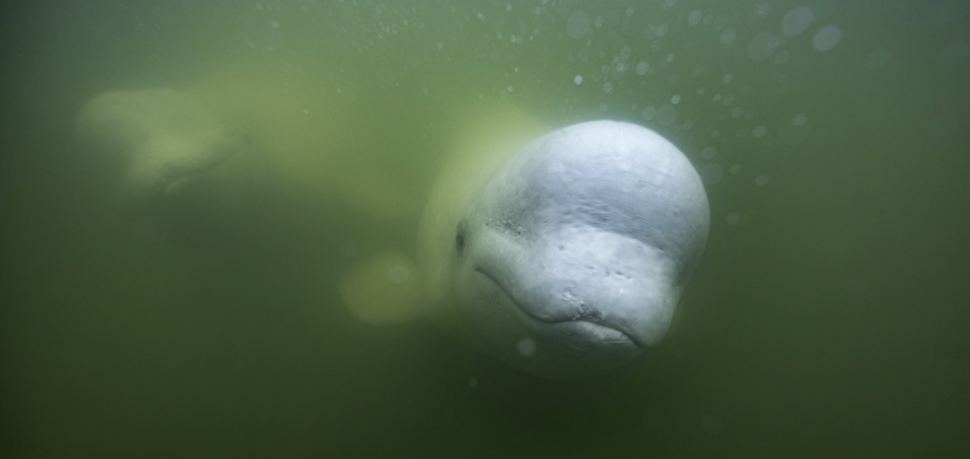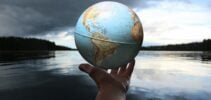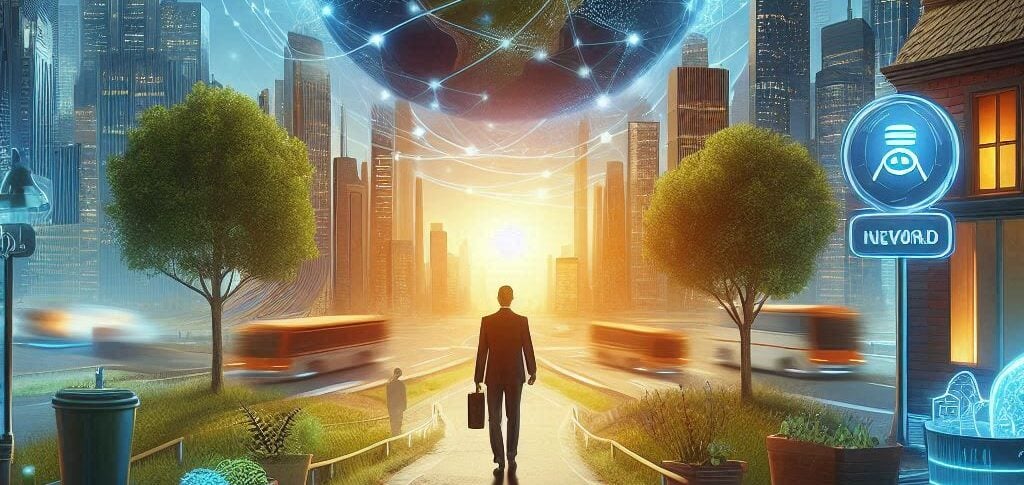🐋 Hudson Bay in Canada, a summer refuge for thousands of belugas
Suddenly, five or six surfers surround the boards, diving from one side to emerge from the other. From the surface, two small eyes and a huge smile can be seen: every summer, about 55.000 belugas migrate from Arctic waters to hudson bay, In Canada.
ADVERTISING
The Canadian estuary allows these small white whales, which travel in groups, to give birth in these relatively warmer and safer waters.
Beneath the somewhat murky surface, the belugas revel in the presence of tourists, who come to Churchill to watch them. This small city of 800 inhabitants is not easily accessible, as only trains or planes can reach it.
Hydrophone
Nicknamed “sea canaries” due to the approximately 50 vocalizations (whistling, clicking, buzzing) they emit, they are “social” animals, with a “very complex communication system”, says Valeria Vergara, who has studied them for years.
ADVERTISING
“A beluga It's a sound-centric species. It is, for them, like the vision for us”, explains the researcher from the Raincoast Conservation foundation.
The population of beluga na hudson bay is the most important in the world. But the decline of glaciers due to climate changes, in a region that heats three to four times faster than the rest of the planet, is a cause for concern for researchers.
🍔 Burger King® will have sustainable self-service totems
ZAMP® – Burger King® and POPEYES® master franchisee in Brazil – is implementing sustainable totems in Burger King restaurants in the country.
ADVERTISING
The initial phase foresees around 350 totems, responsible for recycling more than 70 thousand PET bottles, used in the manufacture of equipment.

The sustainable self-service line, called Ecokiosk, is the first of its kind installed in a network of fast food national with global presence.
Produced by the company Videosoft, the ecofriendly totem received sustainability certifications such as the Green Seal, from ICMBio, the UN Global Compact certification and the MOSS CO² reduction certificate.
ADVERTISING
“We are evolving in the digital transformation of our stores and this is very important and strategic. However, all our movements need to be planned and thought out considering the long-term sustainability of our actions. The installation of sustainable totems is one of these technology initiatives, through which we also want to minimize our impact on the environment, reducing carbon emissions and other polluting gases through the manufacture of the equipment. It’s technology combined with sustainability”, highlights Fabio Alves, vice president of development at ZAMP®.
✈️ Study suggests taxing frequent travelers to decarbonize aviation
Currently, the richest 1% of the world's population causes half of all global emissions. global aviation. The United Nations (UN) estimate is that this industry's energy transition will cost US$121 billion per year by 2050, and the question of how this bill will be paid in a fair and equitable way is beginning to gain ground on the international agenda.
Um study by the International Council on Clean Transport (ICCT🇬🇧), released this Wednesday (28), analyzes how a Global Frequent Traveler Fee (FFL), could generate the revenue needed to equitably decarbonize aviation by mid-century.
ADVERTISING
The idea of creating some global tax to compensate for climate impacts da aviation was one of the demands of the most vulnerable countries at the UN General Assembly last week.
The new study is presented as country and industry representatives gather in Montreal at the UN International Civil Aviation Organization (ICAO) for its Triennial Assembly (27 September – 7 October).
Main conclusions of the work include:
- an fee global FFL would generate 81% of the revenue needed to decarbonize aviation by 2050, only 2% of the world's population will fly the most;
- High-income countries would contribute 67% of this revenue under a frequent traveler tax (FFL), compared to 51% under a flat tax for all travelers. As high-income countries have emitted about 70% of aviation CO2 over the past four decades, this suggests that FFL's cost burden would closely track historical aviation emissions; It is
- future travel demand could decline modestly (-7%) in response to climate taxation. But an FFL would concentrate this effect on the richest 5% (-12% of trips), while having a negligible impact on the poorest 80%.
Implementing a global fee for frequent travelers would require significant efforts. One of them would be the creation of an accurate and privacy-protected flight frequency database. It would also be necessary to establish a sophisticated governance structure to monitor the use of revenue.
🌱 The Amazon could be the birthplace of new diseases
Some human activities can transform the Amazon in a cradle of new diseases, including: deforestation, the use of land for mining or the construction of highways and hydroelectric plants, illegal hunting and livestock farming.
O deforestation and the reduction of biodiversity the risks for the emergence of new zoonoses increase, even a new pandemic may be developed.
The information is in the article published in the magazine “Annals of the Brazilian Academy of Sciences”, designed by researchers from the Federal University of Rio Grande do Sul (UFRGS) and other collaborators.
Read also
O Curto Verde is a daily summary of what you need to know about the environment, sustainability and other topics linked to our survival and that of the planet.
(With AFP)
(🚥): may require registration and/or signature
(🇬🇧): content in English
(*): content in other languages is translated by Google Tradutor





